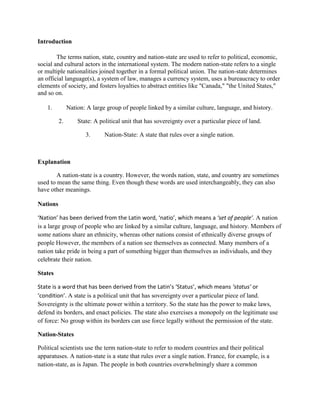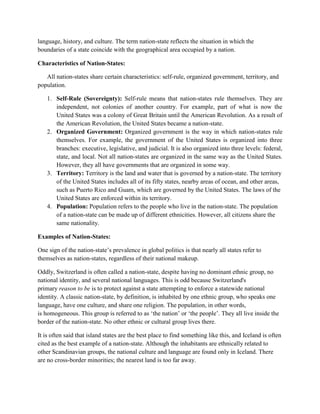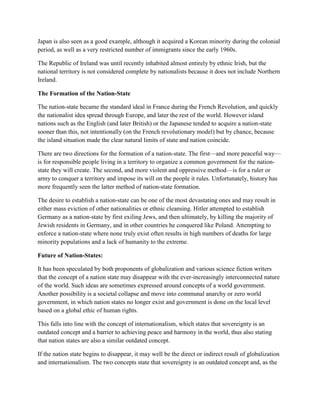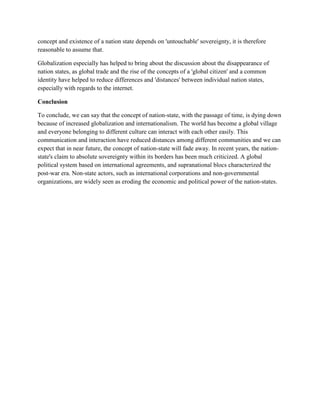The document defines and discusses key concepts related to nation-states. It explains that a nation is a large group of people united by a common culture, language and history, while a state is a political unit that exercises sovereignty over a territory. A nation-state is a state that encompasses the territory of a single nation. Characteristics of nation-states include self-rule, organized government, defined territory, and population. Examples provided are Iceland, Japan and Ireland. The document also discusses the formation and potential future decline of nation-states in a globalized world.



